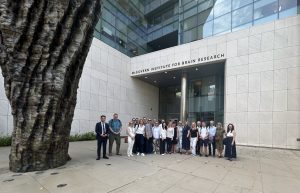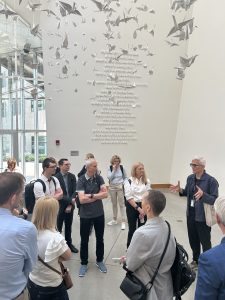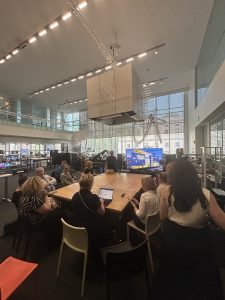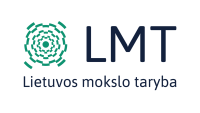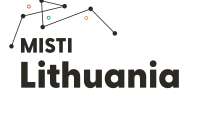The Second Visit of the Lithuanian Consortium to the MIT: A Glimpse into World-Class Science and Innovation
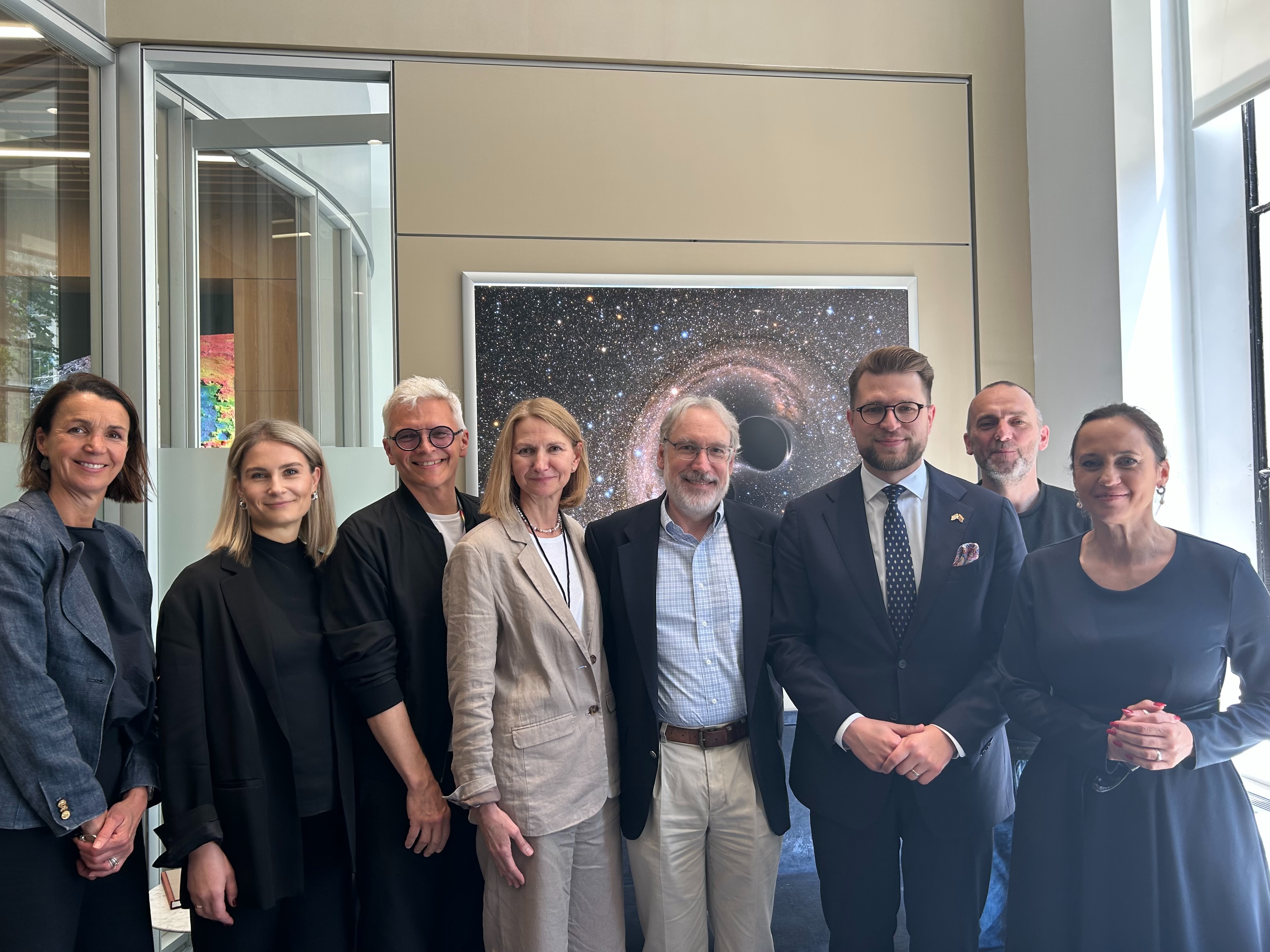
Vytautas Magnus University (VMU), the coordinator of the MIT International Science and Technology Initiatives (MISTI) program in Lithuania, together with partners from the Lithuanian consortium, visited the Massachusetts Institute of Technology (MIT) in Boston, USA, for the second time on June 8–14, 2025. This high-level visit, following the first one held on March 16–21, 2025, was aimed at gaining deeper insights into the infrastructure of the world-leading university, meeting scientists and leaders, and participating in the North American Lithuanian Business Forum. Both visits were funded by the Research Council of Lithuania.
High-Level Representation and Strengthening of Networks
The Lithuanian consortium, comprising 12 academic and business partners, had a unique opportunity to visit various MIT departments known for their innovation, interdisciplinarity, and close cooperation with industry, as well as for their globally recognized inventions and initiatives. Among the institutions visited were the MIT Media Lab, the Computer Science and Artificial Intelligence Laboratory, Center for Quantum Engineering and “MIT.nano”, the Center for Bits and Atoms, the MIT.nano Nanotechnology Center, the Koch Institute for Integrative Cancer Research, and the McGovern Institute for Brain Research.
The VMU delegation was represented by Rector-Elect Prof. Ineta Dabašinskienė, MISTI Lithuania Program Coordinator Ina Žurkuvienė, Director of the VMU Science and Innovation Department Prof. Darius Milčius, Deputy Director of the Bioeconomy Research Institute doc. Dr. Viktorija Vaštakaitė-Kairienė, Head of the Department of Biochemistry Prof. Saulius Šatkauskas, Prof. Auksė Balčytienė from the Department of Public Communication, and doc. Dr. Viktoras Bachmetjevas from the Department of Philosophy.
Strategic Discussions on Expanding Collaboration
“This visit was not only about witnessing MIT’s impressive infrastructure or technology. What stood out the most were the people – humble yet visionary. The ideas they create seem unbelievable, yet here they become reality,” shared Rector-Elect Prof. Dr. Ineta Dabašinskienė. She emphasized that “Mind, Hand, and Heart” is more than a motto – it is the core of MIT’s daily practice. “Their work is driven not only by knowledge, but also by the belief that the world can be changed responsibly and creatively. What impressed me most was how naturally MIT integrates technology, science, and art. Creativity here is not an add-on – it’s a fundamental part of innovation. Art becomes a space for experimentation, rethinking societal challenges, and crafting meaningful solutions that connect disciplines and people,” Prof. Dabašinskienė added.
During the visit, the VMU delegation also participated in a strategic meeting with Prof. Duane S. Boning, MIT Vice Provost for International Activities, The Ministry of Economy and Innovation of the Republic of Lithuania Lukas Savickas, and Vice Minister Agilė Barzdienė. The discussions focused on expanding cooperation between MIT and Lithuania in the fields of education, research, capacity building, and science-industry collaboration. The meeting was also attended by Deliana Ernst, Director of MIT Global Programs, and Prof. Gediminas Urbonas, whose efforts initiated this strategic partnership between MIT and Lithuania. The discussion highlighted Lithuania’s goal to strengthen cooperation with MIT and seek long-term benefits for the country’s science and innovation ecosystem.
“This visit helped us understand more clearly that we can achieve much more together – universities, business, and the public sector. Interdisciplinarity, critical thinking, and cooperation are not just labels or buzzwords – they are real actions and mindsets,” said Rector-Elect Prof. Ineta Dabašinskienė.
Participation in the Business Forum and Tackling Global Challenges
Lithuania’s agreement with MIT also enabled the organization of the North America–Lithuania Business Forum in MIT Media Lab premises. The event was initiated by the Embassy of Lithuania and Lithuanian consuls in the United States. During the visit, consortium partners actively participated in the forum program and initiated the panel discussion “MIT MISTI Lithuania. Cooperation in Energy innovation.” The session addressed technological innovation, commercialization for energy independence, energy policy, national security, and MIT’s expertise in these areas.
Panel participants included: Vladimir Bulović (MIT Professor of Electrical Engineering, MIT.nano Founder); Darius Milčius (VMU Professor, Head of the VMU Science and Innovation Department, and Senior Researcher at the Lithuanian Energy Institute); Violeta Motuzienė (Professor at Vilnius Gediminas Technical University, Doctoral Supervisor at the Lithuanian Energy Institute, and Expert at the Lithuanian Innovation Agency); Vytautas Bitinas (Technology Director at Lithuanian Railways), with moderation by Prof. Gediminas Urbonas (MIT Media Arts Professor).
“We often talk about how global challenges require collective intelligence, collaboration, and a deep commitment to human values. Therefore, one of Lithuania’s main goals in this cooperation – despite having different resources – is to explore how we as a country can contribute to solving global problems,” said Program Coordinator Ina Žurkuvienė following the second MIT visit.
MIT has ranked #1 globally in the QS World University Rankings for 14 consecutive years. It is the top university in 11 subject areas and ranks second in 7 more. “I believe that such consistency is ensured by this very mindset and the organizational culture of the university,” said Ina Žurkuvienė. “It’s not just about interdisciplinarity that transcends academic boundaries – it’s also about the passion and dedication with which everything is done.”
A Long-Term Program and Its Significance for Lithuania
The second visit to MIT underscores the importance and ambitious goals of the MIT MISTI Lithuania program. This partnership with MIT – a global leader in science, technology, and innovation – provides Lithuania with a unique opportunity to access world-class expertise and resources. Over the coming years, the current three-year cooperation agreement (2025–2027) is expected to evolve into a long-term, comprehensive program. This would enable Lithuania to further strengthen its position in science and innovation and contribute to building a high value-added economy.
MIT MISTI Lithuania Activities and Consortium Partners
The MIT MISTI Lithuania program, officially launched by an agreement on January 28, 2025, is a three-year strategic partnership between the Lithuanian science and business consortium and MIT. Planned activities include early-stage research projects (Global Seed Fund), student internships between Lithuania and MIT, and joint events in Lithuania and at MIT. Currently, 14 MIT students are conducting internships at Lithuanian universities, research institutions, and companies.
The program is coordinated by Vytautas Magnus University. Consortium partners include: Kaunas University of Technology, Klaipėda University, Vilnius University, Vilnius Gediminas Technical University, Vilnius Academy of Arts, Lithuanian Research Centre for Agriculture and Forestry, Lithuanian Energy Institute, “Ignitis Group”, “Lithuanian Railways”, “Novian”, “Euromonitor International – Eastern Europe”.
About the Massachusetts Institute of Technology
MIT (Boston, USA) is a global leader in science, technology, and innovation, ranked #1 by the QS World University Rankings. In 2024, its total operating revenue exceeded $5 billion, with $2.1 billion allocated to research.
MIT is known for its strong interdisciplinarity, integrating science, engineering, management, social sciences, humanities, and design. The institute also excels in fostering collaboration between science and business, including technology transfer and a dynamic entrepreneurship ecosystem. In 2024 alone, MIT reported 679 new inventions, launched 24 startups, and patented 323 new technologies.
MIT community members have received numerous prestigious awards: 105 Nobel Prizes, 27 Pulitzer Prizes, 26 Turing Awards, 84 MacArthur Fellowships, and more.
MIT is a central hub of Boston’s innovation ecosystem. This ecosystem features a concentration of prestigious universities (MIT, Harvard, Boston University, Tufts, etc.), more than 1,000 biotech companies, research and innovation centers, venture capital funds, and strong science-business collaboration. In Kendall Square – where MIT is one of the largest landowners – companies such as Novartis, Pfizer, Biogen, Sanofi, Vertex Pharmaceuticals, as well as tech giants like Google, Microsoft, Apple, and Amazon are located. This dense concentration of companies and research centers fuels innovation and economic growth.

